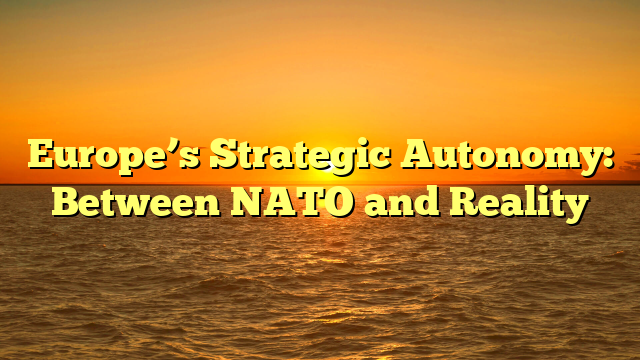As global instability grows, Europe faces a defining question: can it truly achieve strategic autonomy? For years, European leaders have spoken about reducing dependency on U.S. military protection and asserting a more independent deposit pulsa Naga169 foreign policy. Yet the path remains fraught with contradictions.
The war in Ukraine reinvigorated NATO, with Finland and Sweden joining and the U.S. reaffirming its central role in European defense. Still, calls for autonomy persist — especially from France, which advocates for a stronger European defense industry and greater diplomatic independence from Washington.
Germany, balancing its transatlantic ties with growing economic reliance on China, remains cautious. Eastern European states like Poland and the Baltics, fearing Russian aggression, continue to view the U.S. as their ultimate security guarantor.
The European Union has made progress through initiatives such as the European Defence Fund and the Strategic Compass, but integration remains slow. Diverging threat perceptions, budget constraints, and political divisions hinder momentum.
Analysts warn that “strategic autonomy” risks becoming more slogan than strategy. “Europe wants independence without the costs that come with it,” said Brussels-based scholar Judy Dempsey.
In a world of unpredictable allies and assertive rivals, Europe’s quest for autonomy may ultimately depend on its willingness to take risks — and to lead without a safety net.
